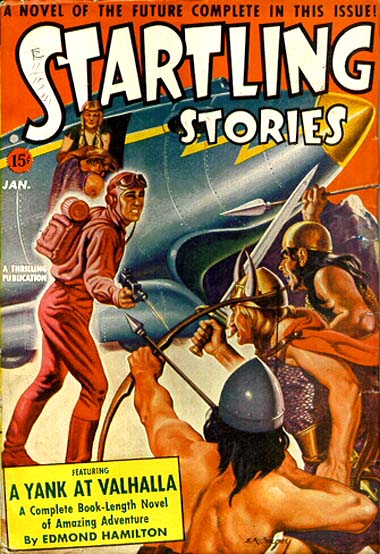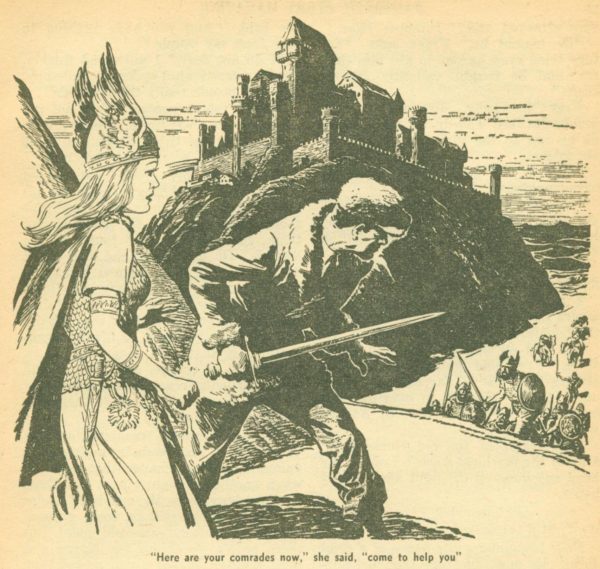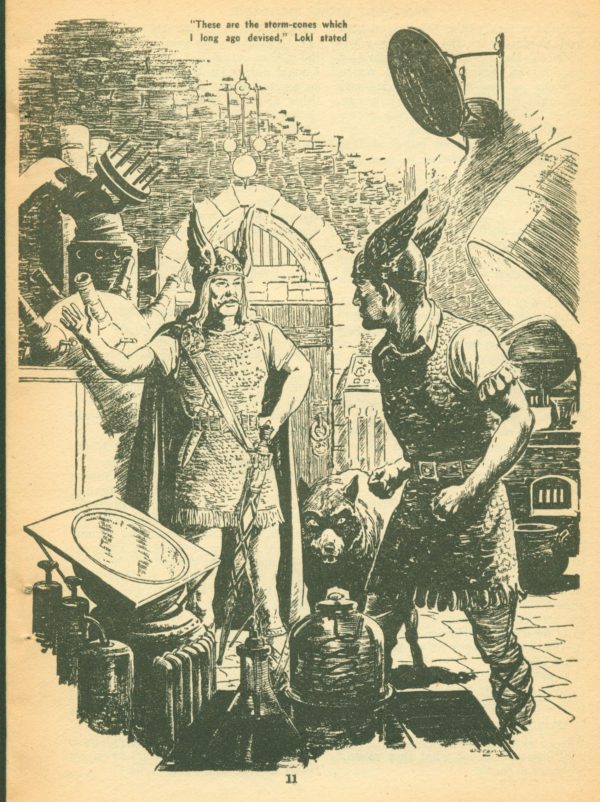 |
| [Original pulp from January 1941.] |
Physicist Keith Masters, during an exploratory survey flight, gets blown into a hidden area of the arctic where he discovers the secret lands of the Norse Gods.
 |
| [An Ace double version from 1973.] |
 |
| [UK re-titled version from 1950. And Freya's going to fall out of that top at any moment.] |
Giants (1950), they share a conceit that a mid-century modern man can think more clearly and problem solve better than an immortal, which here is still a false conceit, and one finds Masters a few times saying things like, "Score one for my science!" to convince us, but not successfully. Anachronistic of this, Masters flies a "rocket plane", which is more than bleeding edge technology in 1940, even for a well-
funded polar expedition.
 |
| [Interior art from Fantastic Story 1953 January pulp.] |
the mix of high-tech with ancient dress reminds us of Stan Lee & Jack Kirby's Thor, which began in 1962, where the science is implied, but not overt, and one wonders if either of them read this beforehand.
 |
| [More interior art from Fantastic Story 1953 January pulp.] |
U.S. entry into WW2. While the text always has the battles as being against the odds, the Viking ethos of combat being a necessary facet to support civilization and that risk being celebrated is prominent in the novella.
 |
| [This same side-saddle valkyrie on colourless Bifrost art was also used for a later NorsePlay: Lester Del Rey's The Day of the Giants, except it was re-titled When the World Tottered.] |
"This was no mere cavern, but an enormous hollow such as many have believed was left under the planet's surface by the hurling forth of the Moon." (p.96)
In a current young adult novel landscape of Riordan's Magnus Chase and Armstrong's The Blackwell Pages, where overweening teen sass underqualifies as optimism, going back to an early NorsePlay like Hamilton's A Yank At Valhalla yields more imaginative treasure.
# # #
While a mostly happy bookstore fixture for over two decades, Guillermo Maytorena IV is currently willing to entertain your serious proposals for employment as a literary/cinema critic, goth journalist, castellan, airship pilot/crewperson, investigative mythologist, or assisting in a craft brewery. Should you be connected to any of the above or equally interesting endeavours, do contact him via LinkedIn or G+.
No comments:
Post a Comment